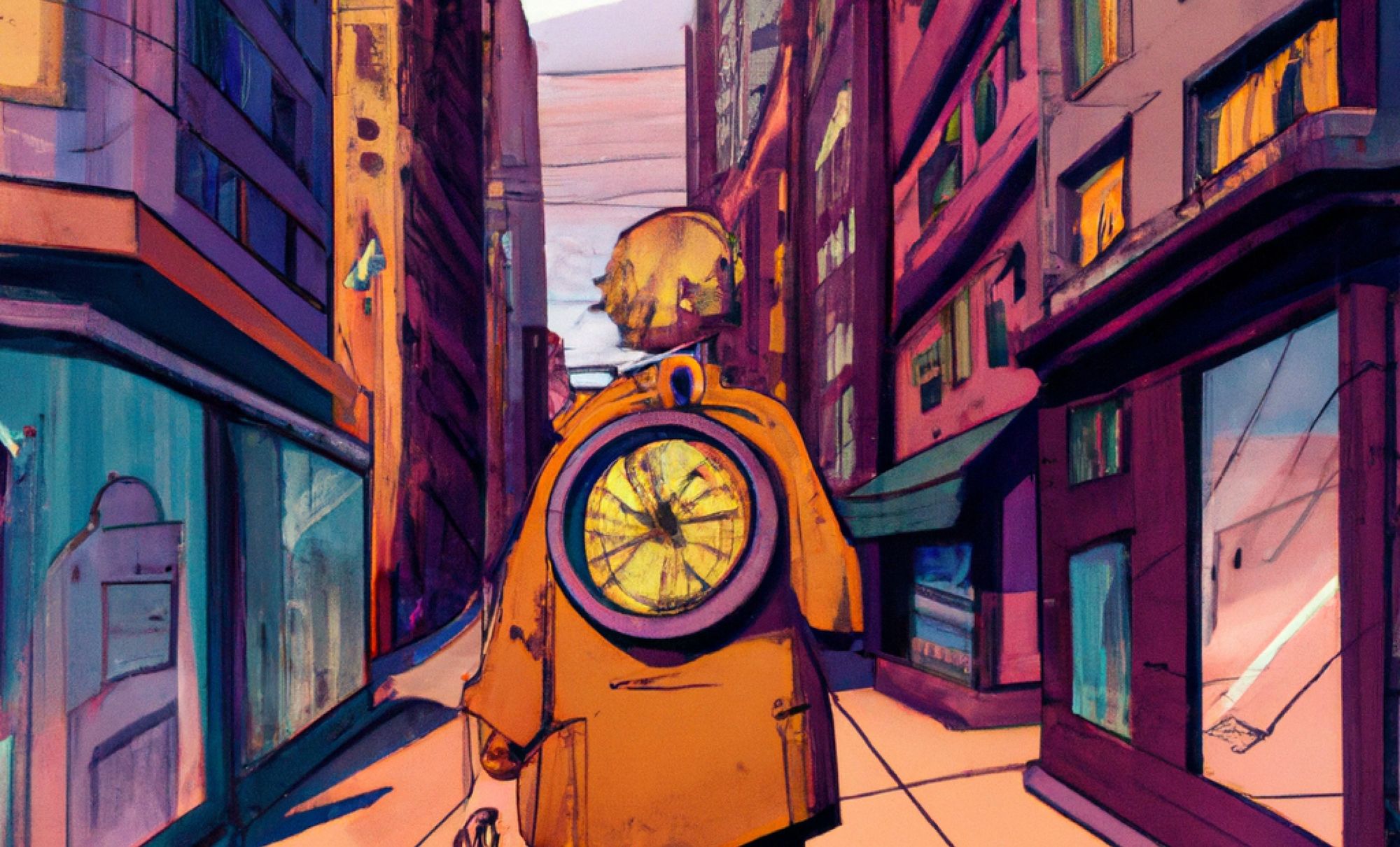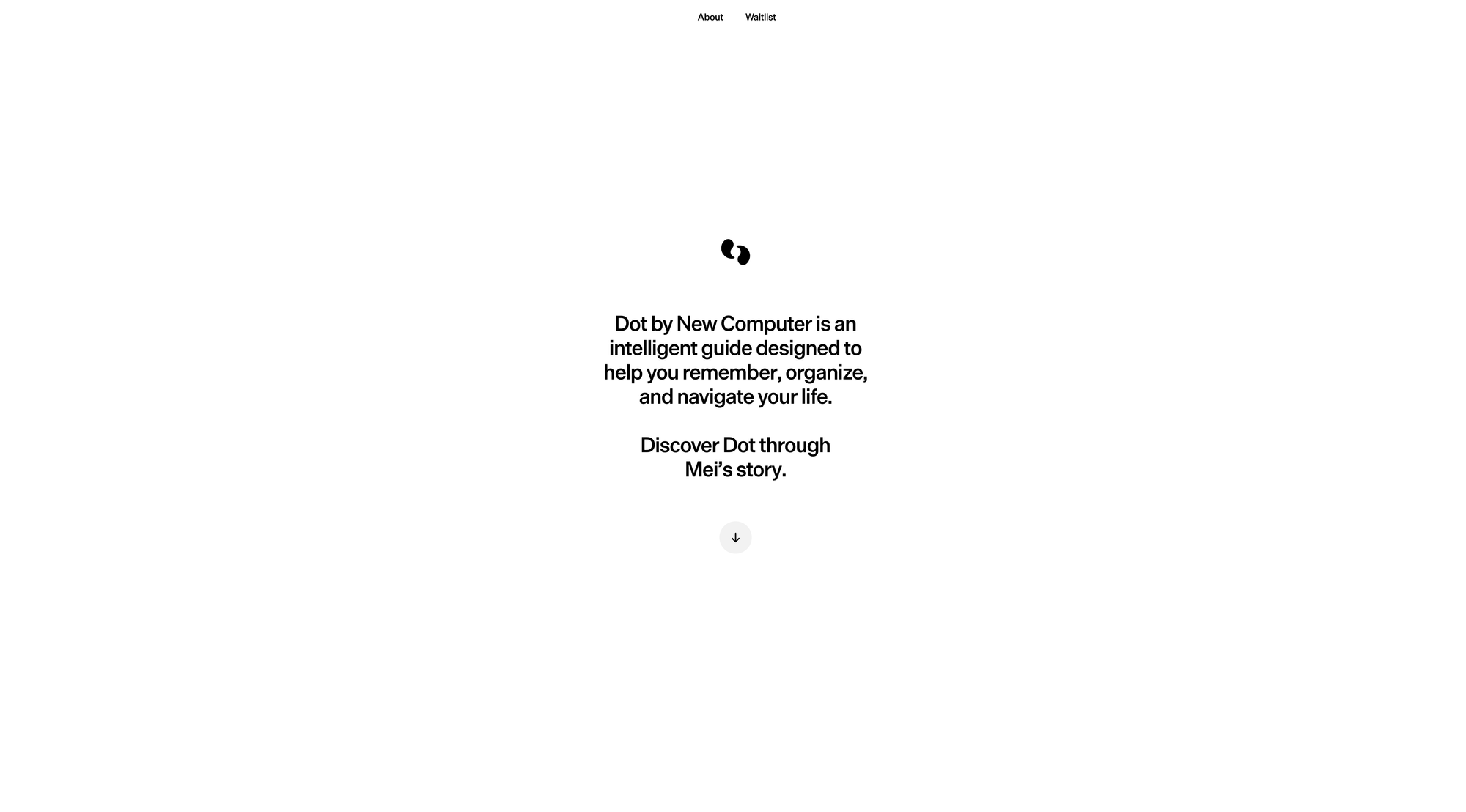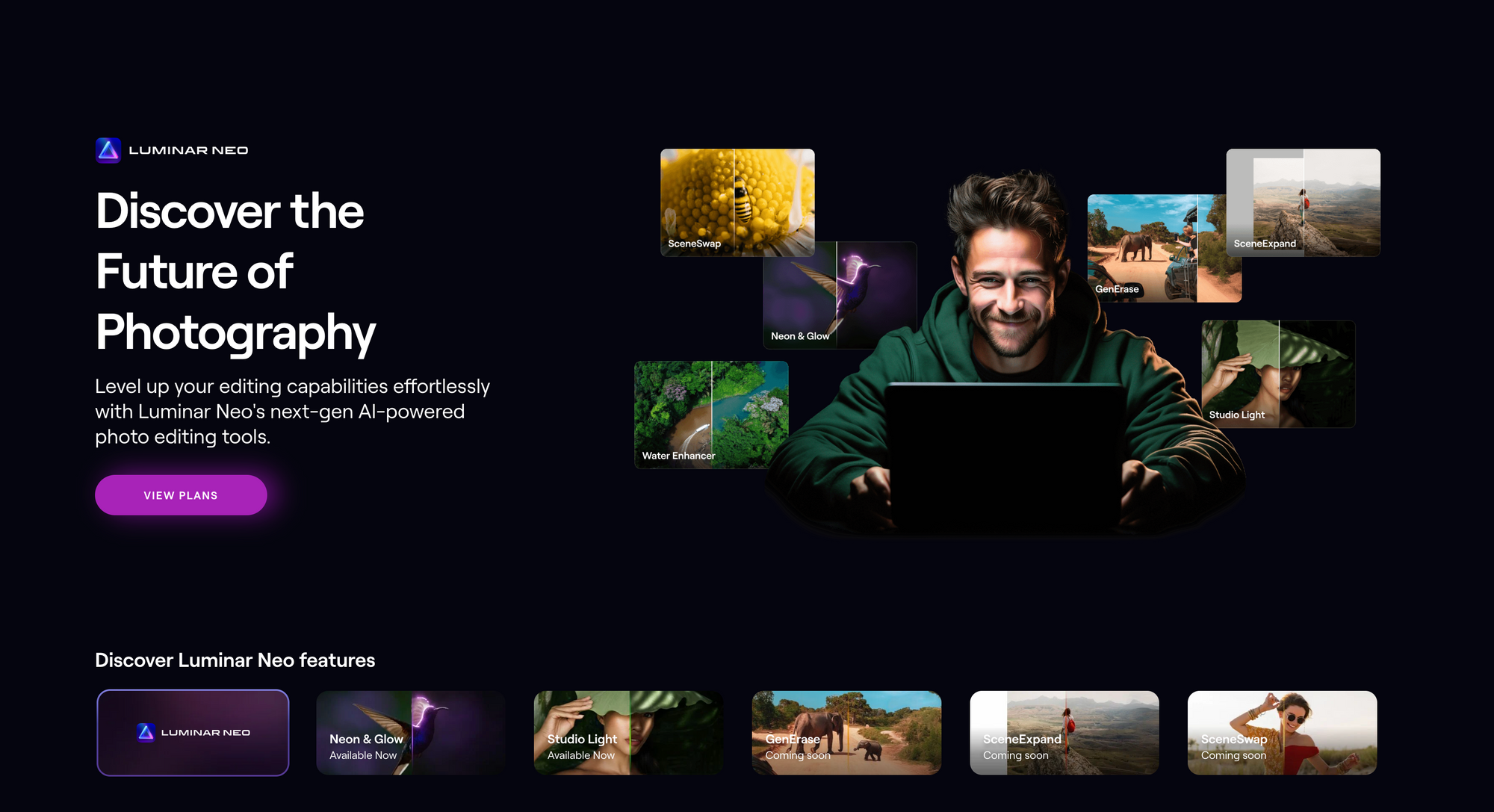The intelligent guide to navigate your life & Design as craft is over
The feeling of not being innovative enough, Raycast updates its Quick AI feature, Proton's Black Friday deals, The Friendship Dip, and a lot more in this week's issue of Creativerly.

My name is Philipp and you are reading Creativerly, the weekly digest about creativity and productivity-boosting tools and resources, combined with useful insights, articles, and findings from the fields of design and tech. The newsletter built for the creative community.
Hey and welcome to Creativerly 246 👋
Do you know the feeling of not being innovative enough at work, lacking creative thinking, and questioning your own work? I have that feeling right now.
In the rapidly evolving landscape of digital product development, the quest for innovation can often feel like an uphill battle. Whether it's developing apps, software, or any other digital product, the challenge of staying ahead of the curve and continuously innovating is indeed a formidable task. The inherent difficulty in achieving innovation in this domain can be frustrating and, at times, demoralizing, leaving us questioning our own work. What makes this struggle even more painful is the realization that the feeling of not being innovative enough and not thinking creatively enough may not be solely dependent on our personal capabilities. Instead, it can be attributed to a complex interplay of factors.
One of the primary reasons innovation proves to be incredibly hard when working on digital products is the breakneck pace at which technology evolves. In the digital realm, what's considered cutting-edge today can become obsolete tomorrow. The pressure to constantly adapt to new trends, technologies, and user expectations can be overwhelming. This perpetual chase to stay relevant leaves little room for taking creative risks and exploring truly innovative ideas. The fear of investing significant time and resources into a concept that may quickly become outdated can stifle innovation.
Another contributing factor to this challenge is the growing competition in the digital product market. With thousands of new apps and software solutions entering the market every day, it's increasingly difficult to come up with genuinely unique and groundbreaking ideas. The fear of entering a saturated market or inadvertently duplicating existing products can lead to self-doubt and hinder innovation. Moreover, as products evolve and innovate, they set new benchmarks and standards, making it even harder to stand out from the crowd.
The formidable task of being innovative when working on digital products is influenced by the rapid pace of technological change, market competition, data-driven decision-making, and the complexities of the digital ecosystem. The frustration of not feeling innovative enough should not be mistaken for a lack of creative capability but rather understood as a natural response to these challenging dynamics. By adapting to these conditions, embracing collaboration, and seeking smaller, incremental innovations, the path to innovation in digital product development can become more manageable and less daunting.
Apps, Software, Tools

Dot →
Dot is an app that immediately gained my attention. The reason for that is the fact that it created a story on their website, guiding through the needs and struggles of a person called Mei, while providing context and examples how Dot can help you with those needs and struggles throughout your day and your life in general. Dot is a guide designed to help you remember, organize, and navigate your life. It is the first product by New Computer, a venture founded by Sam Whitmore and Jason Yuan.
The idea for Dot got born out of the evolving complexity of our digital worlds. Jason and Sam state that interacting with the digital world feels like navigating through a tempest. Dot envisions a new kind of operating system. The goal of it is being respectful towards your preferences, intentions, and limitations, as well as shaping itself around your unique needs, and becoming a true extension of your will. The core capabilities of Dot have been built towards that future. Within Dot you will find automated file management, as Dot creates, organizes, and retrieves both structured and unstructured information, adaptive intelligence, as it learns from patterns in your behavior, internet browsing, as it has access to up-to-date information, contextual multimodal understanding, as it interprets text, audio, visuals, and links, self programming, as it proactively writes and stores routines, personalized display and retrieval, as it transforms information into the most compelling format for each user, conceptual synthesis, as it does not just store information but connects it between topics, ideas, and themes in your life, and theory of mind, as Dot synthesizes a deeper understanding of your motivations and goals.
Dot is powered by powerful transformer models, that can simulate human reasoning. I haven’t seen a comparable product that puts the AI as much into the core of the product, as Dot does. With all the buzz around AI, I am still sceptical whenever I find out about a new tool that is powered by AI. The reason for that is that there are still so many privacy concerns regarding how data is handled, and additionally, I simply haven’t seen the futuristic, life-changing, and powerful integration of AI, maybe Dot will be it.
Regarding privacy concerns, New Computer stated that they will never sell users’ data, never monetize users’ attention, and they believe that the only way to build towards the future they envision is through continuous reinforcement of mutual trust and respect. As of writing this, Dot leverages class cloud-hosted models, including ones from OpenAI, Anthropic, and a selection of open-source options. Besides that, they plan to reduce external dependence and localize computing to run on-device.
In case you are asking yourself how Dot will incorporate into your workflows and your life, let me give you a quick introduction. The features Dot is highlighting on its website are Memory, Context Awareness, Dynamic UI, Personalization, Proactive Agency, Automations and Routines, and Connecting the Dots. Dot has a long-term memory, which means it will remember everything you choose to share. Besides remembering things you tell Dot in chat, you can also share images, screenshots, PDFs, links, and voice memos. Dot will then automatically organize its knowledge of your world within its Dynamic File System. By giving Dot multiple lists of tasks with varying due dates, it will tell you which things you might want to prioritize, and what items you might need to pick up. You can opt-in to give Dot even more context, by giving it access to your location and calendar, which Dot will use to locate the items from your list, and even calculate how long it might take take to complete a task.
With its dynamic UI, Dot intelligently configures information appropriate to the material, presenting it to you in a way that best suits your needs. As you use Dot more and more, it will pick up on patterns specific to you, learning to respond to you with more awareness. At the same time, Dot is always looking for ways to help you. For example, Dot knows you are currently working towards the transition to a vegan lifestyle, so it might independently do research on foods with comparable nutritional needs to what you eliminating, find you vegan restaurants close by, or suggest a YouTube channel dedicated to vegan cooking. If you want to spend less time juggling things to track, you can let Dot account for the many constants in your life. It lets you set up a daily overview to sync on the day ahead, but you can also set up a weekly gratitude reflection, monthly assessments, reminders, or yearly happy birthday notes for all the close friends and family you want to be consistent with.
Lastly, Dot will draw connections to resurface things important to you, even the ones you haven’t mentioned in a while. After learning about all the previous features of Dot, I had the feeling that it was truly a revolutionary product. It is remarkable how it leverages AI. But how Dot draws connections and recalls moments from the past in surprising and serendipitous ways, got me excited and astonished. With Dot, sharing is not the end of the exchange, it has been built and designed to reappear memories in remarkable ways. As it grows its knowledge bank of what is meaningful to you, Dot becomes the digital assistant of your dreams, helping you make sense of the bigger picture.
Dot got me excited, but it also got me thinking. It is very rare that a digital product achieves both for me. To learn more about Dot, you can check out this post from Mark Wilson for Fast Company.

Luminar Neo is an incredible powerful app that will level up your editing capabilities effortlessly with next-gen AI-powered photo editing tools. No matter if you want to edit Landscape, Wildlife, Travel, or Portrait photography, after capturing your favorite moments, Luminar Neo helps you bringing them to life. Thanks to an intuitive and easy-to-use interface, Luminar Neo is accessible to everyone. AI-powered tools let you replace skies, enhance landscapes and portraits. Besides that, Luminar Neo gives you access to a wide range of instruments including layers, masking, and local adjustments.
Use Luminar Neo on Windows, macOS, or as a plugin for Photoshop and Lightroom.
This is an affiliate link to support Creativerly. If you are interested in putting your tool, product, or resource in front of over 2000 creative minds, consider advertising in Creativerly and book a sponsor or classified ad spot. Find all the important information at creativerly.com/advertise.
Fresh Updates & News
Raycast →
The newest Raycast release brought an update to its Quick AI feature. Now, Quick AI has access to real-time web results. This means it is now capable of providing you with answers that are most up-to-date, accurate, and relevant. Raycast provides a fast and intuitive way to open and switch between apps, find files, trigger shortcuts, manage your screen, boost your workflows by using snippets and commands, and now you can ask its Quick AI feature about recent events and get a great concise answer in a matter of seconds. Quick AI is part of Raycast’s paid PRO subscription.
Besides that, part of this update was also an improvement to the Siri Shortcuts integration, with the goal of making them more efficient and reliable. Raycast is using a new engine which improves the Shortcuts discovery. Additionally, it fixes multiple issues which have been reported by the community recently.
SigmaOS →
Besides Arc, SigmaOS is another lovely browser on a mission to revolutionize how we are interacting with the World Wide Web. The newest update brings a rebuilt drag-and-drop for pages and its mini windows, a new and improved link summarization experience for Airis (its AI assistant), page-renaming suggestions, and more.
Mini-windows in SigmaOS are a great way to quickly grab one of your tabs to display it in a separate window when you need to only focus on one page at a time. The improved drag-and-drop experience makes rearranging pages and creating/removing subpages incredibly easy and gives it a more natural feel. By holding CMD while hovering over a link, Airis will give you a preview of the website. Airis will also come in handy when you want to get suggestions for renaming your pages, simply double-click or lock your pages. In general, Airis can now extract 8x more content from pages.
Proton* →
If you are like me, you do not care much about Black Friday deals as they are pressuring people to buy stuff they actually do not need. A Black Friday deal which is actually worth checking out is currently live at Proton. Proton is a Suisse-based company delivering tools like Mail, Calendar, Cloud Drive, VPN, and Password Manager with the highest focus on privacy. With their current Black Friday deal you can get 33% off their most popular plans.
This means you can get the Mail Plus plan which will give you access to Proton Mail, Proton Calendar, and 15Gb of storage for €3.33 per month (billed annually) for the first 12 months. Besides that, you can also grab the Proton Unlimited Plan, which will give you access to the complete Proton suite, including Proton Mail, Proton Calendar, Proton Drive, Proton VPN, and Proton Pass, as well as 500gb of storage for €8.69 per month (billed annually) for the first 12 months. The same 33% off deal applies to Proton’s most powerful plan, the Proton Family plan. For €19.99 for the first 12 months (billed annually), you get access to the whole Proton suite, 3TB of storage, and you can invite 6 users.
Sketch →
It has been a bit quiet around Sketch, the lovely and incredibly powerful design tool that got a bit left behind with the ever-increasing popularity of Figma. Nevertheless, the team at Sketch has been busy putting out lovely updates across its Mac, Web, and iOS apps. Among the most recent ones you will find the introduction of Dark Mode for the web app, the macOS app is back in the Mac App Store, Annotations have landed on iPhone and iPad, and when you are browsing or searching for documents on the web app, you can now filter the view to show only documents with prototypes or documents you can edit.
Mental Wealth
❯ Five reminders for providing design feedback – “The best design work is done when it consists of many diverse opinions. But providing critical feedback to another designer can be tricky, particularly when the one receiving the feedback is less experienced. To ensure ad-hoc critique is well-received, consider: …”
❯ Design as craft is over – “I've started my career as a designer a long time ago when things were much more simple. I absolutely believed that I was a craftsman, and I considered my job to be more alike the carpenter's, rather than any “white collar” job out there. There was pride in accomplishment, and a sense of worth based on the sheer amount of effort which went into the result. It was very much personal. At least it was this for me, as I was a type of designer who always needed to suffer in order to produce something of value. This fact has shaped much of my thinking and doing in life in general, excuse the tangent.”
❯ Artificial General Intelligence Is Already Here – “Artificial General Intelligence (AGI) means many different things to different people, but the most important parts of it have already been achieved by the ~current generation~ of advanced AI large language models such as ChatGPT, Bard, LLaMA and Claude. These “frontier models” have many flaws: They hallucinate scholarly citations and court cases, perpetuate biases from their training data and make simple arithmetic mistakes. Fixing every flaw (including those often exhibited by humans) would involve building an artificial superintelligence, which is a whole other project.”
❯ The Friendship Dip – “Ask yourself: apart from family, how many close friends do you have? You can define “close” however seems appropriate to you. For example: I have close friends who live near me and close friends who don’t. A close friend can be someone you’ve never actually met in person but talk to constantly…or someone you might not talk to every day or every week but nonetheless understand your relationship to them as “close.” Now that you have an approximate number, think about how that number has changed as you’ve aged. How many close friends did you have in high school? In your 20s? In your 30s or 40s?”
Do not miss out on this ...
❉ Experience the ultimate vector editor for macOS, iOS, and iPadOS. \Get started with Amadine*.
❉ Think tasks, not apps. Setapp* is you one-stop subscription to solving every task on Mac and iPhone.
❉ Fathom is cookie-free, GDPR compliant, privacy-first website analytics software. Get $10 off your first invoice and a 7-day free trial when you use this link*.
These are paid promotions or affiliate links to support Creativerly. If you are interested in putting your tool, product, or resource in front of over 2000 creative minds, consider advertising in Creativerly and book a sponsor or classified ad spot. Find all the important information at creativerly.com/advertise.
Appendix
❯ ICYMI
If you are on the hunt for privacy-focused, open-source, and end-to-end encrypted productivity apps and tools, head over to ProductivePrivacy and browse through a packed directory full of apps that respect your privacy. No matter if you are looking for note-taking, task management, or project management apps, ProductivePrivacy got you covered.
❯ Quick Bits
- No, Okta, senior management, not an errant employee, caused you to get hacked
- Elon Musk tries to avoid testifying in Twitter-stock probe, asks court for help
- 'Crypto King' Sam Bankman-Fried faces decades in jail after guilty verdict
- Apple throws shade at Android, labels it as a ‘massive tracking device’
- AI pioneer Fei-Fei Li: ‘I’m more concerned about the risks that are here and now’
- Europe’s first continental spaceport opens in major boost for German startup
- How Valencia’s fast-growing startup ecosystem is thriving
Till next time! 👋
Support: Do you have a friend who is looking for inspiration, news about design, and useful tools and apps? Forward this newsletter to a friend or simply share this issue and show some support. You can also show some love by simply clicking the button down below and keep this newsletter a sustainable side-project by buying me a coffee. ☕️ 🥰

Some of the links in my newsletter and my blog posts are affiliate links. Those links are marked by an asterisk. If you buy something through the link, the product will not cost you anything more, but I will receive a small commission which not only supports Creativerly and my work but also helps me to keep this publication a sustainable side-project.
Creativerly is proudly published with Ghost*.



Discussion